Corpus Christi Blog
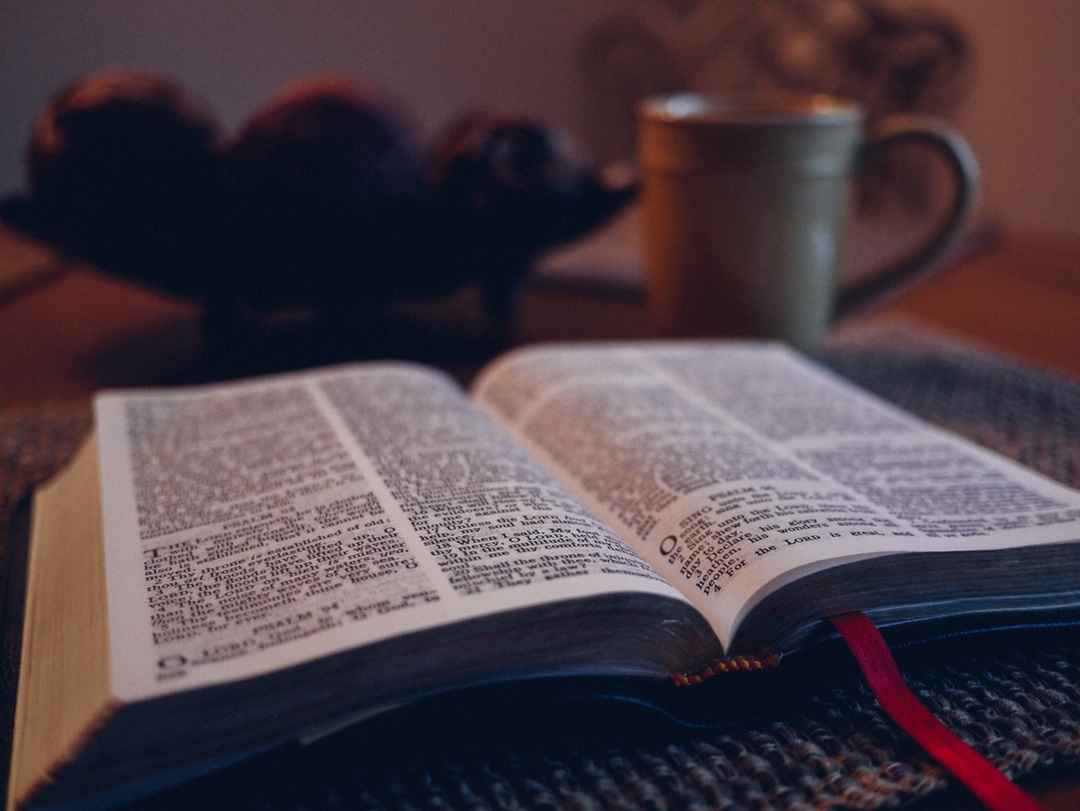
Sacred Scripture and the Sacred Liturgy
01-26-2025Weekly ReflectionJen Arnold, M.A.On September 30, 2010, Pope Benedict XVI issued an Apostolic Exhortation entitled, Verbum Domini: The Word of God in the Life and Mission of the Church, to serve as a deep study on how Sacred Scripture is at the heart of the Church’s life and mission. The exhortation is quite an extensive document and a thorough analysis of various aspects of Scripture, such as how it reveals each of the three persons of the Trinity, how it should be interpreted and studied, its role in the life of the Church, its use for proper evangelization and catechesis, and so on. For my purposes here, I will focus on the pope’s explanation of the relationship between Sacred Scripture and the Sacred Liturgy.
READ MORE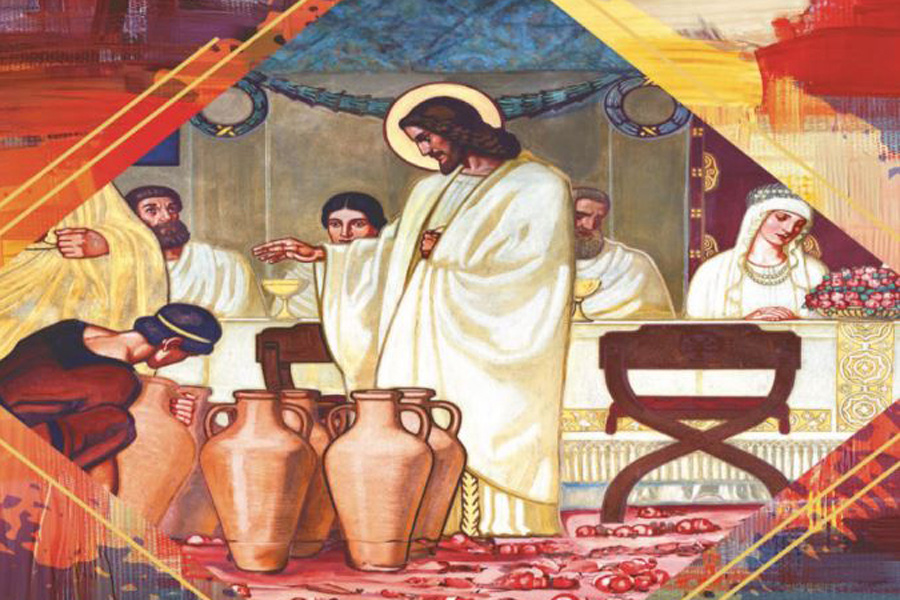
The Four Marks of the Church
01-19-2025Weekly ReflectionJen Arnold, M.A.The Nicene Creed, which we recite at Mass every Sunday, contains a concise summary of what we believe as Catholics. Within that summary, we affirm our faith in the Church, which is defined as “One, Holy, Catholic, and Apostolic.” These four
adjectives — one, holy, catholic, and apostolic — are known as the “Four Marks of the Church.” They describe the essential qualities of the Church as it was established by Christ and as it continues to exist today. Understanding these marks can help us Catholics appreciate the nature of the Church and our place within it.
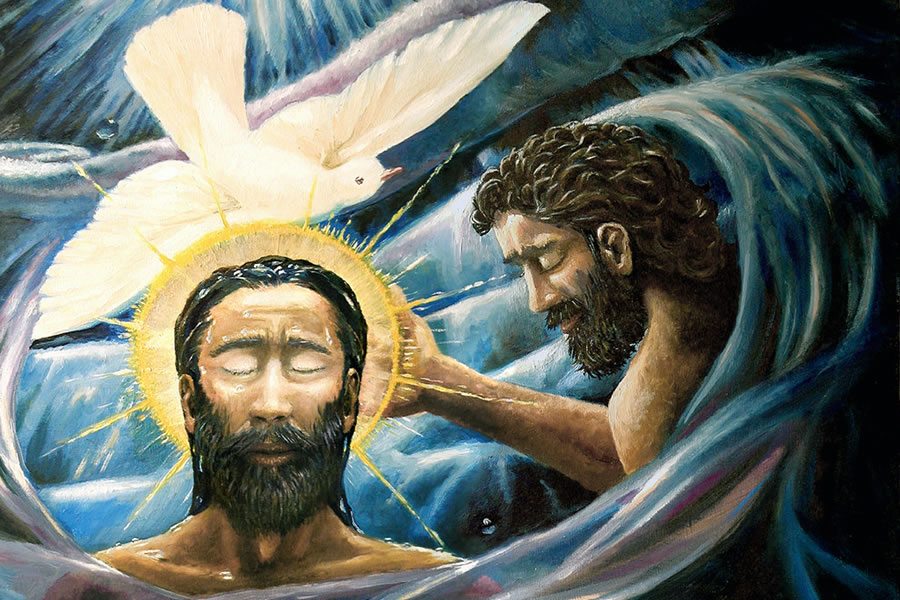
The Baptism of the Lord
01-12-2025Weekly ReflectionJen Arnold, M.A.Today, we celebrate the Baptism of the Lord, which concludes the Christmas season and transitions us into Ordinary Time. The Baptism of Jesus is one of the most significant events in the life of Christ, marking the beginning of his public ministry and providing insight into God's plan for salvation. St. John the Baptist is also a significant figure in this event, as God chose him to prepare the way for his Son's ministry and to baptize him. St. John is not simply a person who facilitates a historical event, but also a theological symbol pointing to deeper truths about repentance, salvation, and the Holy Trinity. Let's take a deeper look at the Baptism of the Lord.
READ MORE
The Holy Name of Jesus
01-05-2025Weekly ReflectionJen Arnold, M.A.A couple of days ago, on January 3, the Church celebrated the Feast of the Holy Name of Jesus, and the entire month of January is dedicated to it. The name of Jesus is not simply a name; rather, it is deeply significant in the life of the Catholic Church with theological and spiritual implications. Let's take a deeper look at the significance of the Holy Name of Jesus and why it is a source of salvation, reverence, and prayer.
READ MORE
Forge Into the Breach with St. Joseph
12-29-2024Weekly ReflectionJen Arnold, M.A.Today, we celebrate the Solemnity of the Holy Family. In the past, I have written about the Holy Family as our model of the Domestic Church, a reflection of the Holy Trinity, and an example for making our own family a school of virtue. However, this year, I would like to focus specifically on the role of men in our families using Bishop Emeritus Olmsted’s apostolic exhortation, Into the Breach, and the example of St. Joseph.
Bishop Olmsted wrote this document in 2015 and named it Into the Breach as a call to arms to Catholic men since our world, and, more specifically, our families, are under spiritual attack by Satan. Here are his opening words:
READ MORE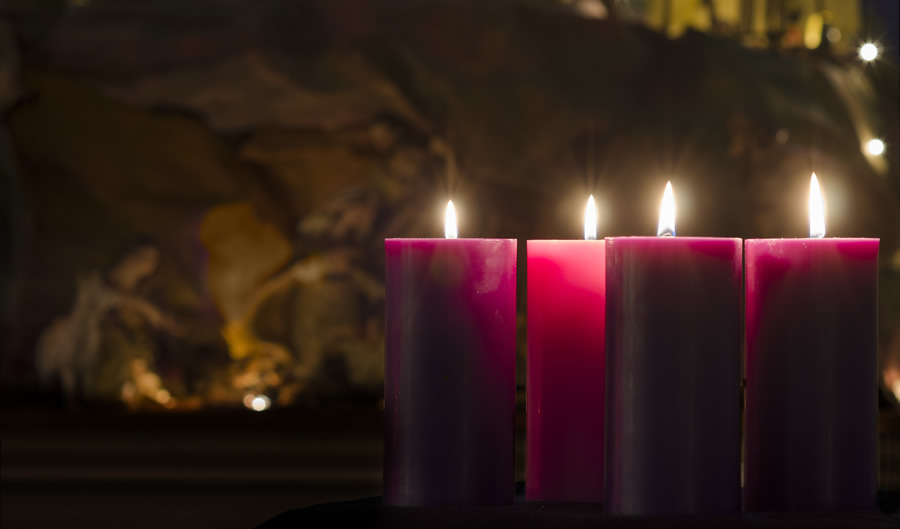
Advent Reflections with Blessed Pier Giorgio Frassati Part 4: Love
12-22-2024Weekly ReflectionJen Arnold, M.A.We have reached the final week of Advent, and Christmas is right around the corner. I have directed this year's Advent reflections to the youth and journeyed through each week's themes using the example of Blessed Pier Giorgio Frassati, who St. Pope John Paul II called “A Man of the Beatitudes” and a patron of the youth. The theme for this final week is charity, which is another way of saying Christian love. For this reflection, we’ll examine how Blessed Frassati demonstrated Christian love in his friendships.
READ MORE
Advent Reflections with Blessed Pier Giorgio Frassati — Part 3: Joy
12-15-2024Weekly ReflectionJen Arnold, M.A.The third Sunday of Advent is called Gaudete Sunday, which is Latin for “rejoice.” In contrast to the three purple candles, today we light the rose-colored candle on the Advent wreath as we focus on the joy we will experience with the coming of Jesus on Christmas. This week, we will look at how Blessed Pier Giorgio Frassati exemplified the virtue of joy in his young life.
READ MORE
Advent Reflections with Blessed Pier Giorgio Frassati Part 2: Peace
12-08-2024Weekly ReflectionJen Arnold, M.A.We’ve reached the second week as we continue our Advent reflections with Blessed Pier Giorgio Frassati for the youth. The theme for the second week of Advent is peace. When Pope John Paul II beatified Blessed Frassati on May 20, 1990, he called him the “Man of the Eight Beatitudes” because he lived his life according to Jesus’ roadmap to happiness in the Beatitudes (cf. Matt 5:1-12). In 1975, Pier Giorgio's sister, Luciana, wrote about her brother in a book called A Man of the Beatitudes: Pier Giorgio Frassati, in which she devoted a chapter to describing how her brother lived out each of the Beatitudes. Let's take a closer look at Luciana's perspective on her brother's living witness of the beatitude, “Blessed are the peacemakers.”
READ MORE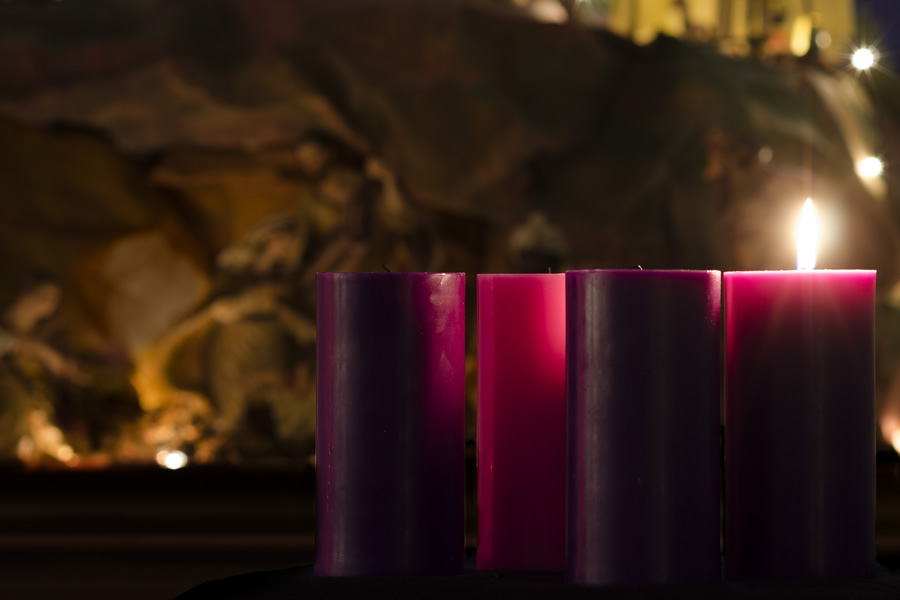
Advent Reflections with Blessed Pier Giorgio Frassati Part 1: Hope
12-01-2024Weekly ReflectionJen Arnold, M.A.For this Advent series, I will be reflecting on how Blessed Pier Giorgio Frassati exemplified the Advent themes of hope, peace, joy, and love. I am going to do something different for this series. While these reflections will certainly apply to anyone, my goal is to speak directly to the young people. I am currently the mother of five teenage children, so it seems a fitting time for me personally to do this. Pope John Paul II named Blessed Frassati a patron for the youth, having died at the age of 24, and Pope Francis recently announced that Frassati’s canonization will take place during the Jubilee of the Youth in Rome next summer, so he certainly is a pertinent example. If you are a parent, grandparent, or catechist, or have any young people in your life, please consider sharing these Advent reflections with them.
READ MORE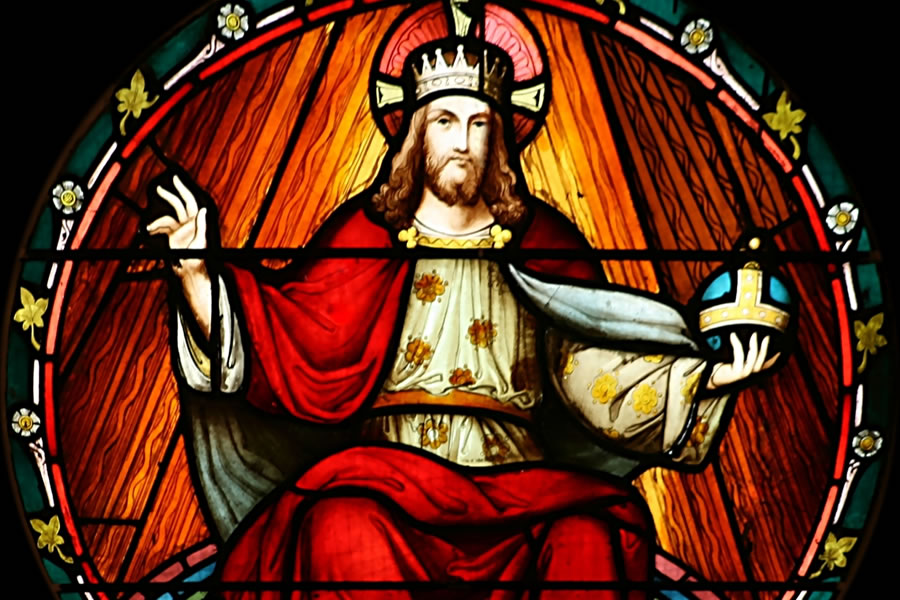
Christ the King
11-24-2024Weekly ReflectionJen Arnold, M.A.Today, we celebrate the Solemnity of Our Lord Jesus Christ, King of the Universe. In 1969, Pope Paul VI elevated today’s celebration from a feast to a solemnity, and "of the Universe” was added to the title. However, today, I will be discussing the institution of the original feast day.
Pope Pius XI’s encyclical Quas Primas, issued on December 11, 1925, established the Feast of Christ the King. He began the document by explaining why the feast is necessary. Historically, it was the aftermath of World War I and a time of great social and political upheaval. The world was witnessing the rise of totalitarian regimes and ideologies that sought to marginalize or eliminate religion from public life. The Pope saw these developments as symptoms of a deeper spiritual crisis – the rejection of Christ's authority in both private and public spheres. He stressed that there can be no lasting peace in the world until individuals and governments submit to the rule of Christ.
READ MORE
Eucharistic Miracle Stories from Corpus Christi Parishioners
11-17-2024Weekly ReflectionJen Arnold, M.A.The Catholic Church teaches that Jesus is truly present — body, blood, soul, and divinity — in the Eucharist. We are blessed to have the opportunity to receive Jesus in the Blessed Sacrament every day at Mass, and at our parish, we have access to Jesus in the Adoration Chapel 24 hours a day, seven days a week. Because the Host is not merely a piece of bread, but Jesus himself in the flesh, the Eucharist has the same ability to heal and perform miracles in our lives as the stories we read of Jesus performing miracles in the gospels. Our parish has hosted Eucharistic miracle exhibits featuring well-documented miracles from around the world. However, there are countless healings and miracles that regular Catholics experience every day. Several weeks ago, there was an announcement in the bulletin asking parishioners to send me their personal Eucharistic miracle stories to share. Here are just a few that were shared.
READ MORE
The Poor Widow’s Poverty of Heart
11-10-2024Weekly ReflectionJen Arnold, M.A.He sat down opposite the treasury and observed how the crowd put money into the treasury. Many rich people put in large sums. A poor widow also came and put in two small coins worth a few cents. Calling his disciples to himself, he said to them, “Amen, I say to you, this poor widow put in more than all the other contributors to the treasury. For they have all contributed from their surplus wealth, but she, from her poverty, has contributed all she had her whole livelihood. – Mark 12:41-44
READ MORE
Consolation & Desolation
11-03-2024Weekly ReflectionJen Arnold, M.A.Each of us is on our own spiritual journey with a natural ebb and flow. Sometimes, we feel great in our relationship with God, and everything is smooth sailing, while at other times, it feels like we are fighting against the tide. Today, we will examine a couple of terms popularized by St. Ignatius of Loyola in his Spiritual Exercises to describe these interior movements of the soul and our relationship with God: consolation and desolation. It is important to recognize that both consolation and desolation are normal parts of the spiritual journey. Even Jesus experienced moments of desolation, most notably in the Garden of Gethsemane. By learning to recognize and respond to these spiritual states, we can deepen our faith and navigate the challenges of the spiritual life more effectively.
READ MORE